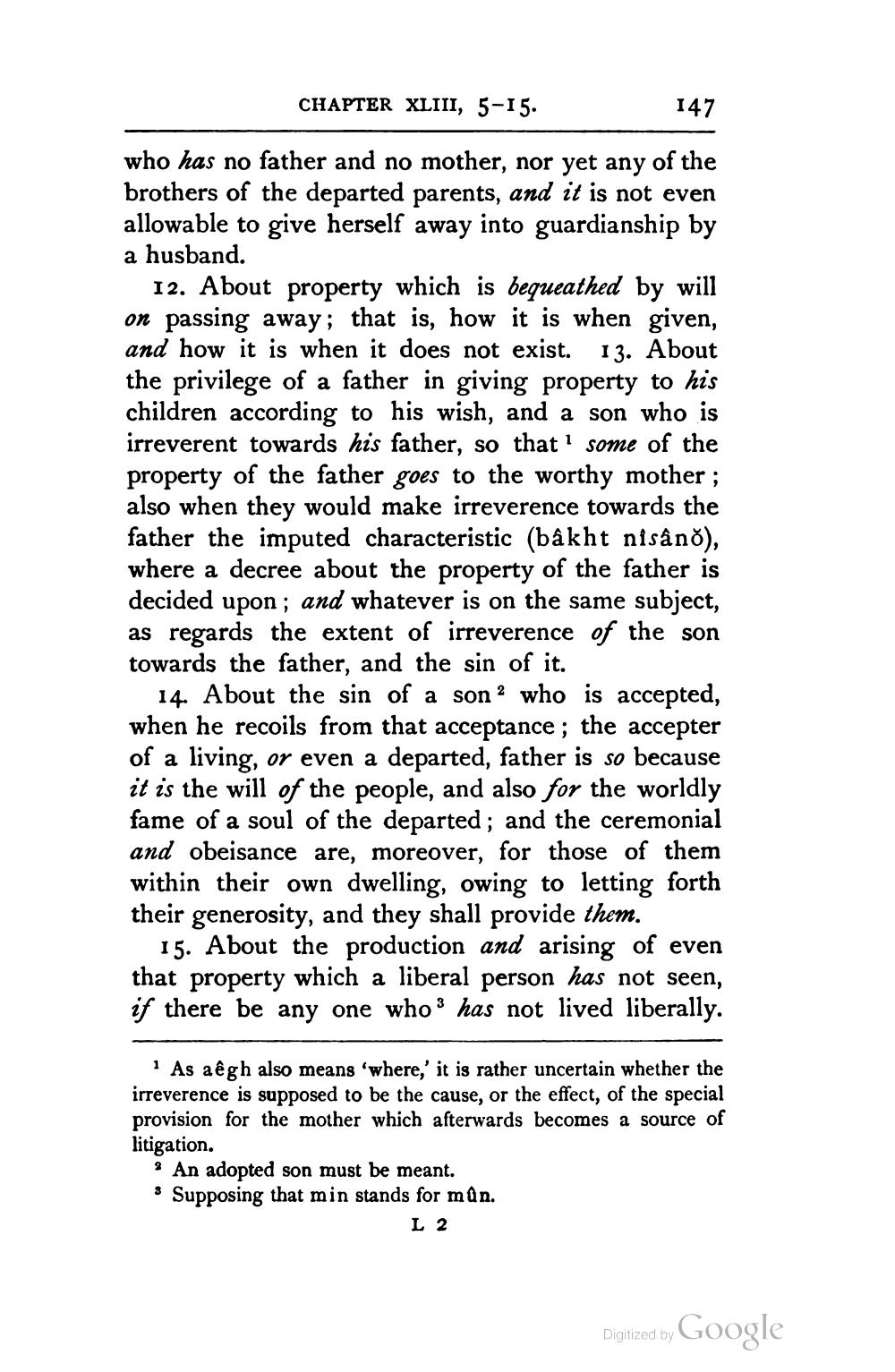________________
CHAPTER XLIII, 5-15.
147
who has no father and no mother, nor yet any of the brothers of the departed parents, and it is not even allowable to give herself away into guardianship by a husband.
12. About property which is bequeathed by will on passing away; that is, how it is when given, and how it is when it does not exist. 13. About the privilege of a father in giving property to his children according to his wish, and a son who is irreverent towards his father, so that some of the property of the father goes to the worthy mother ; also when they would make irreverence towards the father the imputed characteristic (bakht nisano), where a decree about the property of the father is decided upon; and whatever is on the same subject, as regards the extent of irreverence of the son towards the father, and the sin of it.
14. About the sin of a son 2 who is accepted, when he recoils from that acceptance; the accepter of a living, or even a departed, father is so because it is the will of the people, and also for the worldly fame of a soul of the departed; and the ceremonial and obeisance are, moreover, for those of them within their own dwelling, owing to letting forth their generosity, and they shall provide them.
15. About the production and arising of even that property which a liberal person has not seen, if there be any one who has not lived liberally.
As aêgh also means 'where,' it is rather uncertain whether the irreverence is supposed to be the cause, or the effect, of the special provision for the mother which afterwards becomes a source of litigation.
? An adopted son must be meant. * Supposing that min stands for man.
L 2
Digitized by Google




